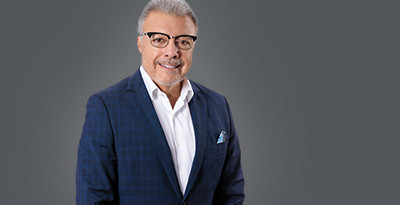Should Ohio Businesses Be Doing More to Open Trade With Cuba?
August 8, 2014
With a Brazilian investment of more than 600 million dollars, Cuba opened the first phase of the Mariel commercial mega port 25 miles east of Havana. Havana’s historic harbor will be turned over completely to passenger cruise ships that are anticipated in great numbers to visit “Havana Vieja," the largest colonial city in the Americas, upon the lifting of the U.S. embargo. The Mariel port is designed to accommodate the “New Panamax” cargo ships that will traverse the Panama Canal when the Canal’s expansion is completed.
The expansion of the Mariel port is part of the evolving Cuban economic model put in motion by the Cuban government during the past three years. In November, Cuba enacted laws creating the Mariel Special Development Zone (Mariel Zone), an area of 465 square kilometers surrounding the port. In the Mariel Zone, foreign investors are authorized to engage in all types of manufacturing and service industries as well as real estate development with 100 percent foreign ownership. The Mariel Zone is subject to a special regulatory scheme to facilitate importing, exporting and regulatory approval and compliance. Other than social security payments, investors will pay no tax on labor and real property. There will be no custom duties on equipment and goods entering the zone for investment purposes and no income tax for the first 10 years on business profits.
Cuba is also set to revamp its foreign investment laws for the entire country. Investors from all over the world are looking at real estate developments, golf courses and more hotels. With a highly educated population and a good health care system, the Cubans also want investments in high tech fields, medicine, pharmaceuticals, and bio-technology.
How all these changes are going to work in real life will take some study and time. No doubt, there is a long ways to go and further changes are needed. But one thing is certain, changes are occurring rapidly within Cuba and the U.S. relationship with Cuba is going to change. Opinion polls in the U.S., including Florida, show that most Americans, including Cuban-Americans, favor a change in U.S. policy and more open trade and travel to Cuba. Influential Cuban-American businessmen such as sugar baron Alfonso Fanjul, who have long supported the embargo, are now softening their position and traveling to Cuba. Fanjul was quoted in the Washington Post as saying he is ready to invest in Cuba under the right circumstances. Anyone who has recently flown to Havana from Miami knows that Cuban-Americans are travelling in droves to Cuba to invest in restaurants and shops with relatives and friends. These Cuban-Americans are carrying the goods and cash on the passenger planes making the daily flights to Havana and other Cuban cities from the U.S.
In Havana, first-time American visitors are shocked to see a United Colors of Benetton store in the Plaza Vieja. In fact, Benetton already has two stores in Havana. The Swiss luxury watch brand Cuervo y Sobrinos also has a store in “Old Havana."
At 12 million people and tourism of more than 2 million per year, Cuba may not be Brazil but it has a population the size of Ohio and plenty of room to grow in population, tourism and economic development. A number of U.S. entities are already intently focused on Cuba. An example is Tampa which has sent several business delegations to Cuba and strongly worked to change the dynamics in Florida towards more open trade with Cuba. The efforts of Tampa and its, politicians, businessmen and women do not go unnoticed in Cuba.
Ohio, with its diverse economy which includes agriculture, fashion, manufactured goods, medicine, pharmaceuticals, bio-technology, education and consumer products is just the type of state that would benefit from the opening of Cuba as a new market and investment locale.

